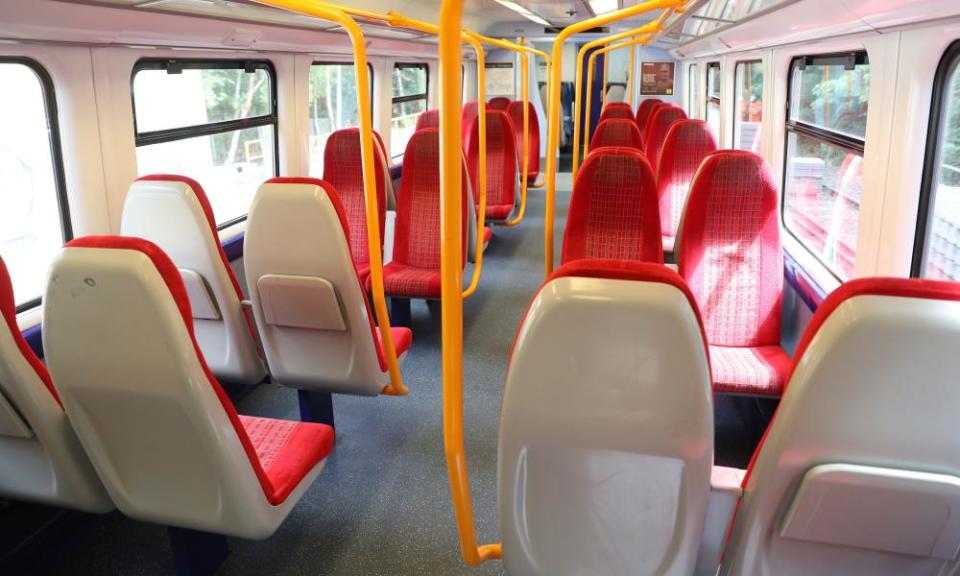Rail firms to restore 90% of services amid back-to-work push

Train operators will restore more services on Monday as the government seeks to encourage Britain’s office workers back to their desks.
About 90% of the usual schedule will be operating after the timetable change, and up to 98% of pre-pandemic commuter services in the south-east, although some of the remaining suspended train services are now unlikely to come back until December.
While social distancing requirements mean trains can only safely carry about half of their usual capacity, there will also be extra carriages on some peak trains to allow more people to travel, particularly on routes serving schools, with more schools in England and Wales reopening.
Robert Nisbet, a director at the Rail Delivery Group, which represents train operators, said: “Rail companies are boosting services to help people feel confident getting back to workplaces and supporting the economic recovery in city centres. Some train times will change so we’re asking people to check before they travel and plan their journeys for quieter times if possible.”
The passenger watchdog, Transport Focus, welcomed the expansion of services. Anthony Smith, its chief executive, said: “The rail industry must focus on maintaining good performance so that passengers can travel with confidence. Disruption and any crowding from this will be especially unwelcome.”
Schedules have returned to about 80% of normal levels in recent weeks, after being slashed during lockdown under emergency measures. Train operators have performed better while focusing on key services, but trade unions demanded that full timetables be restored, amid concerns that schedules could end up being reduced permanently.
The RMT’s senior assistant general secretary, Mick Lynch, said maintaining a 10% reduction in services through autumn was “a retrograde and damaging step, that flies in the face of the government plans to get Britain back to work”, and would be seen by the union as “a hostile act that could usher in further and deeper cuts down the line”.
He said: “Any moves towards transport austerity with the purpose of slashing services, jobs and conditions will be vehemently opposed by RMT every step of the way.”
The government said that suggestions it would agree to fewer services in the long term were “inaccurate and untrue”. The Department for Transport said: “We have asked operators to increase service levels ahead of schools returning in September, ensuring current excellent reliability levels are maintained while providing more space for social distancing and extra capacity for the future.
“With passengers returning as the economy restarts, our intervention means the railway is ready and able to support the national recovery from Covid.”
Passenger numbers remained at just under a third of normal levels at the start of September, according to DfT figures.
Face coverings remain mandatory on trains and stations, and a recent study by the Rail Safety and Standards Board found the risk of catching Covid-19 was less than 0.01% on an average journey.
The industry is understood to be frustrated by the wait for an unequivocal endorsement of the safeness of trains from the government, as well as changes to ticketing. With many people no longer travelling to work regularly enough to benefit from season tickets, the cost of a daily return at peak times is seen as a deterrent to occasional commutes. Some employers have introduced schemes to help counter this, with Bloomberg offering up to £56 a day in travel expenses for staff coming into the office.

 Yahoo Finance
Yahoo Finance 